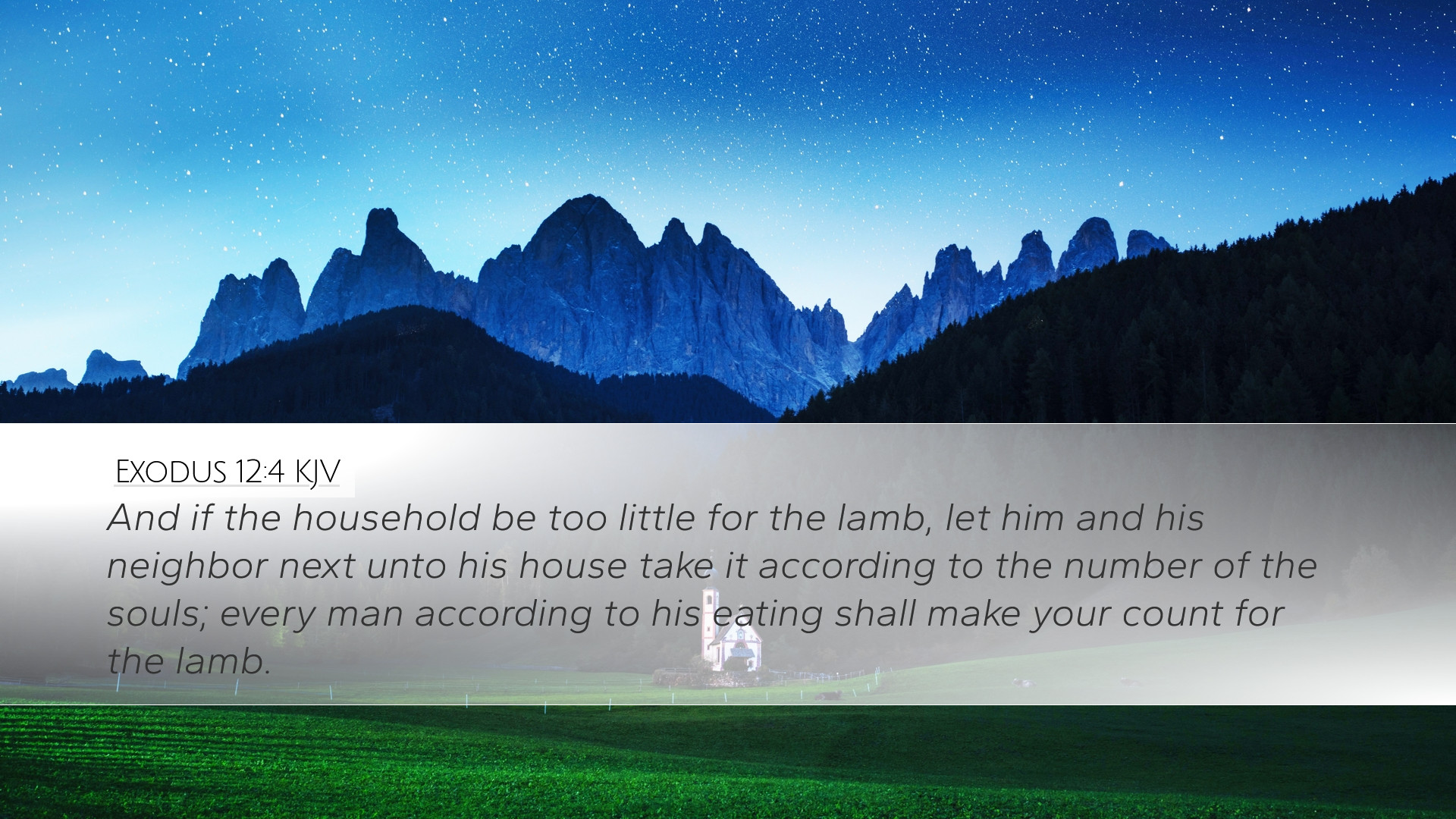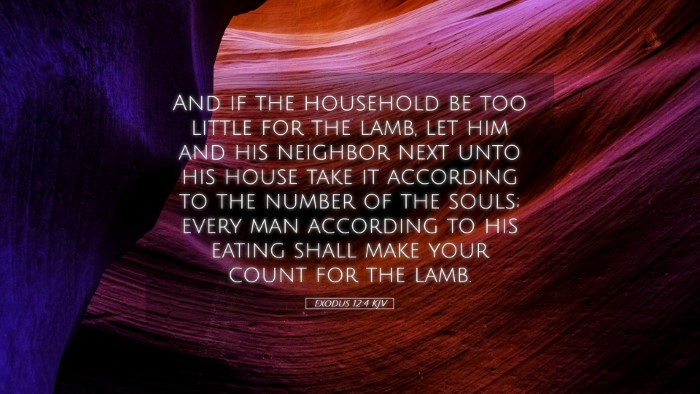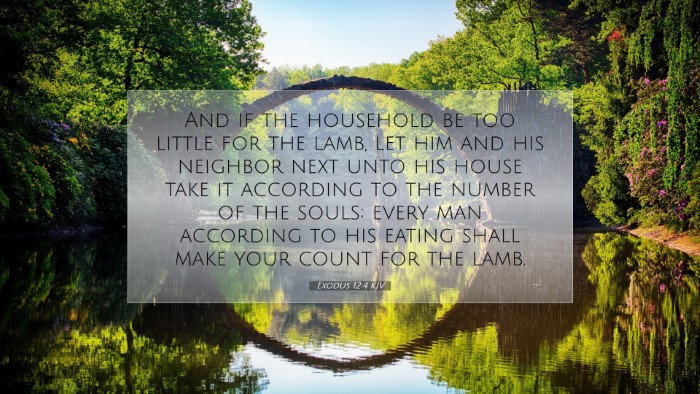Commentary on Exodus 12:4
Verse: "And if the household be too little for the lamb, let him and his neighbor next unto his house take it according to the number of the souls; every man according to his eating shall make your count for the lamb."
Introduction
This verse is situated within the context of the Passover, a critical moment in the history of Israel. The directives given in this passage are aimed at ensuring that all families can participate in the Passover feast, which symbolizes deliverance from bondage. This commentary synthesizes insights from notable public domain theologians to elaborate the significance and implications of Exodus 12:4.
Insights from Matthew Henry
Matthew Henry emphasizes the communal nature of the Passover. He notes that the details concerning the selection of the lamb reflect God's desire for inclusion and participation among His people. It is essential that everyone, regardless of the size of their household, is able to partake in this sacred feast.
- Communal Participation: Henry points out that the very instruction to share the lamb with a neighbor underscores the importance of unity within the community. The act of eating the lamb is not just an individual affair but a collective ordinance.
- Provision for All: The directive indicates that God provides for all, ensuring that even the smallest household is accommodated. This aspect highlights God's compassion and care for every individual.
- Count According to Eating: Henry further elaborates on the phrase "according to the number of souls." This responsibility placed on each household to assess their needs reinforces the expectation of stewardship and thoughtful participation.
Insights from Albert Barnes
Albert Barnes, in his comments, offers a perspective on the significance of the lamb, noting it as a type of Christ. He draws parallels between the Passover lamb and the sacrificial nature of Jesus.
- Typology of the Lamb: Barnes emphasizes that the lamb must be shared among the household, similar to how Christ is shared with the Church. This speaks to the communal aspect of salvation where all believers partake in the benefits of Christ's sacrifice.
- Inclusive Nature of God’s Salvation: Barnes reinforces that the instruction to share with neighbors demonstrates that the offer of salvation is not limited; it encompasses those who may not have originally been part of the immediate family.
-
- Spiritual Instruction: The emphasis on "every man according to his eating" can reflect a deeper spiritual truth—that believers must partake of Christ according to their individual relationship and need for Him.
Insights from Adam Clarke
Adam Clarke offers a detailed exploration of the cultural implications of this verse, highlighting the customs surrounding sacrificial meals and their significance in the Jewish tradition.
- Cultural Context: Clarke elucidates that sharing the lamb would have been a traditional practice, reflecting the social structures of ancient Israel where families and neighbors cooperated for communal meals.
- Symbol of Deliverance: He notes that partaking in the Passover lamb was a sign of shared deliverance from Egypt, which not only emphasizes individual salvation but also the communal experience of liberation.
- Spiritual Application: Clarke emphasizes the greater spiritual implication of this meal, describing it as a foreshadowing of the Last Supper and the ongoing practice of communion in the Church today, where believers join together in remembrance of Christ.
Theological Reflections
Exodus 12:4 provides rich theological reflections that hold significant meaning for modern-day believers.
- Shared Identity: The Passover establishes an identity rooted in the experience of deliverance, inviting believers today to recognize their shared journey of faith in Christ.
- Call to Unity: The instruction to share underscores the need for community among believers. It calls churches to foster unity, encouraging them to share not only physical resources but also spiritual blessings.
- God's Provision: The verse invites believers to reflect on God's provision, reminding them that He meets both individual and communal needs through His abundant grace.
Conclusion
Exodus 12:4 serves as a reminder of God's inclusive invitation to partake in His redemptive work. The insights from prominent theologians underscore the necessity of community, sharing, and the deep spiritual truths inherent in the practices surrounding the Passover. Pastors, students, and theologians are encouraged to explore these dimensions as they delve into the richness of Scripture and its teachings on redemption and fellowship.


